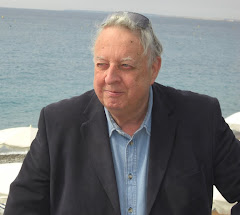For the past sixteen
years, I have been a faithful admirer of the violinist Lisa (formerly
Elisabeth) Batiashvili. I recounted recently how she was in my top
echelons for recordings of the “big” violin concertos of
Beethoven, Brahms, and Shostakovich. I greatly admire her poise, and
her extraordinary powers of concentration, a concentration that means
she can often get away with tempos slower than many of her fellow
instrumentalists. She always has beautifully judged dynamics, perfect
phrasing, all allied to an immaculate technique. Which is why I
seized upon her new CD of the well-worn violin concertos of Sibelius
and Tchaikovsky (DG, with the Berlin Staatskapelle under Daniel
Barenboim).
I already have one
excellent recording of Batiashvili in the Sibelius concerto, one she
made in 2007 with Sakari Oramo and the Finnish Radio orchestra. This
new recording is similar to that excellent old one, with the Finnish
orchestra sounding perhaps more involved than the Germans (although
the orchestra does not play a big part in Sibelius's concerto). In
2007, Batiashvili was slightly faster in the first movement, but
pretty well the same tempo in the second and third movements. If I
prefer the old orchestra, I slightly prefer the newer Batiashvili;
even more poised, more serene and mature, and even more immaculate in
dynamics, intonation and phrasing. In 2007 the playing was slightly
more passionate; in 2016, more poised and elegant. And maybe her
violin (now a del Gesù) sounds better here than in the 2007
recording.
Batiashvili was a known
quantity in the Sibelius concerto (she won the Sibelius prize with
it, long ago) but I was curious to hear her in the Tchaikovsky
concerto, an unlikely choice for the Batiashvili treatment, I would
have thought. She confesses that she avoided the Tchaikovsky concerto
for many years, since “everyone plays it” and (I would guess) she
suspected it did not really suit her style of playing. But: a
pleasant surprise. After Radulovic's “slash and burn” approach
(that I greatly admired recently), Lisa is warm and lyrical. There is
a beautiful and fascinating account of the first movement cadenza;
what intonation! And really lovely playing in the slow movement. The
Tchaikovsky concerto gains immensely in stature when played like
this. Radulovic and Batiashvili are chalk and cheese in this concerto
but, in my heavenly tomb, I will take the Batiashvili version with me
for its poetry and entrancing violin playing.
Damn it: the girl has
scored two more bull's eyes! The violin on the DG disc is balanced a
little more forward than is usual at the moment, and this is a good
thing since I do not have to strain to hear the violin when it is
played pianissimo, or with harmonics. I am running out of three
stars. I really hope that one day Batiashvili will launch into the
Elgar and Britten violin concertos (where she would almost certainly
once again arrive at the front of the grid).
